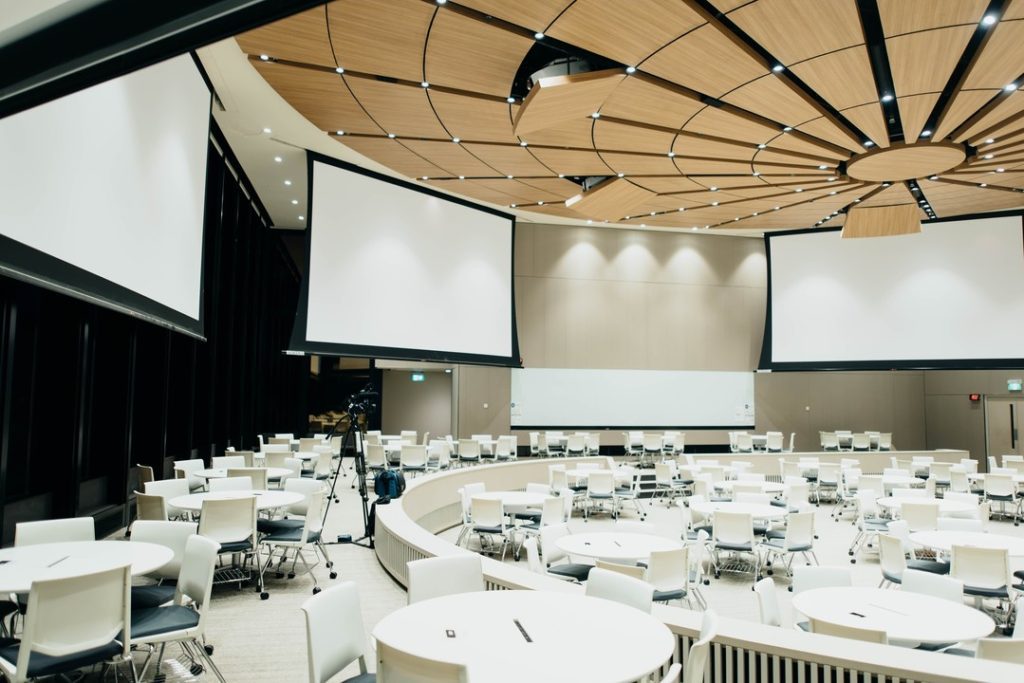The demand for AV services is growing fast, across every industry. More connected workplaces and hybrid events means more complexity in every installation. In theory, this is great for the industry as a whole—but the number of experienced professionals who can support that growth isn’t keeping pace.
Integrators are feeling the pinch across the industry. It’s getting harder to find skilled talent, especially in roles that require deep technical know-how and adaptability. And with many AV veterans nearing retirement, the problem is only set to get worse.
In this kind of landscape, the smartest path forward may not be a new hire: it may be helping the people you already have grow into who you need.
A Complex Labor Shortage
There’s no single cause behind the AV workforce shortage. It’s due to a mix of factors: industry vets aging out, fewer young professionals entering the field, and a general shift in how people think about work and careers.
While those trends have been building for some time, the pressure is just now becoming more visible. Project timelines are stretching. Teams are spread thin. In some cases, companies are turning down work simply because they don’t have the capacity to deliver it well.
Trying to hire your way out of that challenge is tough:
- Training someone new takes time;
- Recruiting from outside the industry is costly;
- The learning curve is steep for new talent.
Why Upskilling Makes Business Sense
Upskilling isn’t just about keeping your current employees happy (though it helps with that, too). It’s about building a team that can handle more: technically, strategically, and confidently.
When you carve out space for learning—whether through certifications, peer mentoring, or even informal cross-training—you create a workforce that can grow with the demands of your business. You reduce your dependence on new hires, increase team agility, and open the door to taking on more complex, higher-value work.
It’s not a silver bullet, but it’s a valuable strategy you control.
What It Looks Like in Practice
The companies that treat training as a once-yearly box to check aren’t doing themselves any real good. The organizations that get real value out of upskilling treat it more like a regular rhythm. Here’s what that may look like:
- Letting a new tech shadow a more senior colleague on a complex install
- Giving someone an hour each week dedicated to learning systems they don’t yet know
- Rotating responsibilities to give people exposure to different types of work
- Building in time for structured vendor trainings
- Aligning team check-ins around recent learnings & real-world problem solving
No two approaches look exactly the same, and they don’t have to be formal; they just have to be intentional. What they all have in common is a mindset of making growth part of the job—not something you get to “if there’s time.”
More Than Technical Skills
The best AV teams are technically strong, yes. They’re also collaborative, clear-headed under pressure, and comfortable working alongside clients, IT departments, and other AV and event teams.
Upskilling supports all of that. It’s a chance for technicians to broaden their knowledge not only about gear but also about communication, planning, and troubleshooting, making them more capable in every setting. You’ll find the ripple effects to be real and immediate: stronger installs, fewer missteps, and better customer experiences.
Investing in People = Investing in Performance
This industry runs on trust. Clients trust us to deliver. Teams trust each other to get it right. That kind of reliability doesn’t come from systems alone; it comes from the people behind them.
When you invest in your team’s development, you invest in your reputation. You’re building a group that can confidently handle whatever complexity the next project brings.
As talent becomes harder to find, that capability becomes your competitive edge.
What We’ve Learned
At AV-Tech Media Solutions, we’ve built our reputation on delivering AV that works under pressure—and that starts with people who are prepared. Our own team has grown through hands-on experience, ongoing training, and an open-door mindset that encourages questions, learning, and shared wins.
That’s the kind of culture we also help our clients support, because a great business is only as good as the people running it.
Looking to join a stronger, more future-ready AV team? We’d love to talk.



